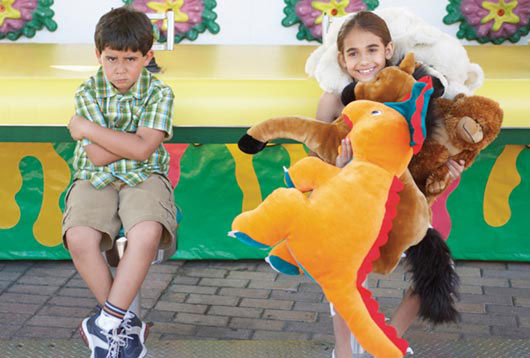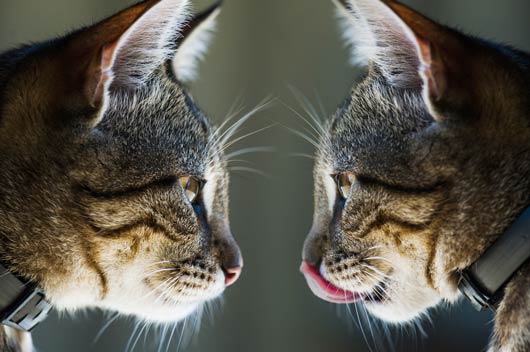
It’s been the subject of books, comedies, tragedies, and countless movies. It can be real or imagined; it can cause arguments over dinner or a lifetime of damaged relationships.
It’s that feeling one child has about a sibling—that their brother or sister is, in fact, loved more by their parents or grandparents. It’s called favoritism, and it routinely causes jealousy and conflict—sometimes well into adulthood and over the course of a lifetime. Parents don’t mean for one child to feel more loved than another, but sometimes even just the perception of bias can prevail.
Here are some ways Mom and Dad can avoid favoritism, smooth over hurt feelings, and make sure their kids feel that there’s more than enough love to go around.
Read Related: Celebrating National Siblings Day
AVOIDING COMPARISONS
When Little Sister always seems to get better grades, excel in every after-school activity she tries, and hangs out with the most popular kids in class, it can be hard for Big Sister not to feel that she can never possibly measure up. “When I was in college, I would call home to tell my parents about an exam I did well on or a term paper I was working on,” says Lana. “And my Dad would immediately say, ‘Well, your little sister just got 100 on her math test.’ And she was in middle school! I felt like he was so much prouder of her.” The result was not just that Lana felt inferior to her younger sister. “I didn’t feel like I could be happy for her when she accomplished something. I just felt jealous, and like, Well, our parents are happy enough for you. You don’t need my support.”
Know that your children have different areas of talent, and be sure that each one feels special in their own right. At the same time, don’t seek to divide their accomplishments for them. Avoid saying things like, “Your brother is good at math, and you are more creative” or “The B you got in science is good, but your sister got an A.” Celebrate their achievements without comparing one to the other; there should be enough love for everyone to feel supported.
EVERY KID HAS SPECIAL NEEDS
“Growing up, my older brother Kevin had epileptic seizures that were triggered by emotional upsets,” says Jason, now a father of four boys himself. “My parents were always telling me not to upset him. If we had an argument, they invariably took his side so that he wouldn’t get too emotional. Despite whatever indignation I would suffer at his hands, I was in the wrong for engaging with him at all. I never felt like they were on my side.”
When one child in a family has special needs—such as a physical disability or an emotional issue—the attention given to him or her by Mom and Dad can leave siblings feeling that their needs aren’t as important. If one of your children has special needs, of course you want to give all of you’ve got—but that shouldn’t come at the expense of your other children.
Single mom Josyln’s older son, Eric, was diagnosed with a mood disorder that required a lot of her attention. She made sure to spend one-on-one time with her younger son, Toby. “I can remember with fondness our trips together to the supermarket,” she recalls. “Toby is a nutritionist and chef now and credits those fun moments we made at Stop and Shop. I pushed the cart and he would pick out the food plus a healthy treat (or two) for himself.”
Josyln was upfront and honest with her kids. “I also told Toby that I appreciated his patience and that I was proud of him for being a good brother to Eric.” In addition, she asked Toby if he’d like to speak with someone, and he did. “After the first session [with a therapist], my son came whistling out of the session and said, ‘Mommy, that felt really good to talk…’”
As for Eric, Josyln “educated [him] about his mood disorder and told him it was something that was happening to him that was not his fault, but that he had to learn to manage just like a kid who had diabetes. I told him often that he was creative and wonderful and had this challenge as an opportunity to grow strong.”
She adds, “I now have two beautiful grown sons.”
Read Related: A Grown Up Learns To Share
REALITY CHECK
Sometimes, favoritism is imagined by a child because—well, because kids can be kids. If one of your children is crying foul because of perceived favoritism, feel free to lovingly give them a reality check. “Your brother got a stereo for Christmas because he asked for one, just like you got the doll you asked for,” is a gentle way to remind a child who feels her Barbie doesn’t quite measure up to big brother’s boombox.
However, it’s also a good idea to consider what your son or daughter is saying when they complain of favoritism. Last year, Time magazine reported on a study that looked at 384 pairs of siblings and their parents. Catherine Conger, the professor conducting the study, “concluded that 65% of mothers and 70% of fathers exhibited a preference for one child, usually the older one.” Time also noted that “those numbers are almost certainly lowballs, since parents try especially hard to mask their preferences when a researcher is watching.”
For some parents, it might seem outrageous to think that one child is actually loved more than another. But feelings can be complex. “I do believe some parents feel more comfortable/loving/generous with one child over another,” says Jayne Gumpel, a family therapist with a private practice in Manhattan. Being aware of these feelings is key. “It is all a matter of how conscious we are as parents,” explains Gumpel. “Guilt does not work. How one behaves is more the issue. Choosing to be fair … overrides emotional comfort.”
GOODY TWO-SHOES VS. BLACK SHEEP
Sometimes, children can seem to fall into different categories; there’s the jock and the school nerd, the goody two-shoes and the black sheep, and the overachiever and the dreamer, to name a few. It’s natural that the school nerd may think her parents are more impressed with big sister’s basketball prowess; the dreamer imagines that his parents wish he was more focused and goal-oriented, like his younger brother. Ironically, the jock is simultaneously worried that she should be more academically inclined, like her sister; and the overachiever may be concerned that his parents admire his older brother’s creativity and whimsy.
It’s important to embrace your children for who they are and to celebrate everyone’s accomplishments, however different they may be. But when it comes to the goody two-shoes and the black sheep, children can feel that they’re stuck with two labels they can never shake off, and the black sheep invariably senses that he or she is coming out the loser.
“Children are not ‘bad,’” says Jayne Gumpel. “Help your children find the language to express their feelings and needs and make sure your child(ren) feel validated.” Avoid dividing your children with labels, and take the time to see what’s really going on. “If you have an extreme ‘very good’ and a ‘very disruptive’ child I would not compare them,” says Gumpel. “But rather I would speak about the individual strengths of each and educate each to understand that we are all connected (by God or…..) but we are also each different and unique.”
If parents feel one child is firmly entrenched as, say, a “bad girl”? Accentuate the positive. “All children want attention and need attention,” says Gumpel. “Focus on her strengths!”
LOOKING AHEAD
Jason, the father of four whose older brother Kevin has epilepsy, is all grown-up now. Sadly, both his parents have passed away. “I would love to have a closer relationship with my brother, especially now that our parents are gone,” he says. But the conflict of their childhood—in which Jason wasn’t allowed to “upset” his brother, and Kevin “got away with murder”—has had a lasting and unfortunate impact on their adult relationship.
When presiding over a sibling relationship, parents should take extra care in thinking about keeping that relationship strong in the future—especially when their children will need each other more than ever.
Certainly, Mom and Dad are not entirely responsible for whether or not their children get along; as kids grow up, they have to take responsibility for their relationships, and that includes the ones they have with their siblings. But parents can accept that their children are unique and individual, and accept those differences without playing favorites. “I think it’s normal to have different feelings for your children,” says Jayne Gumpel. “But it’s essential not to act that out in any way that makes a child feel unloved or ‘less than.’”
Embracing your children’s unique personalities, strengths and weaknesses alike, not only brings parent and child closer together, but helps ensure that siblings feel equally loved and appreciated—and can have their own loving sibling relationship for the years to come.











